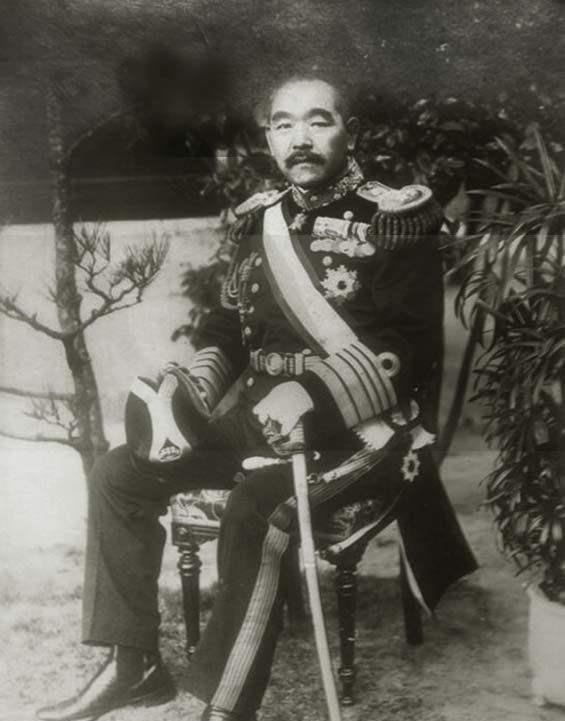The Japanese Emperor's announcement of unconditional surrender marked the end of World War II, but although the defeat on various fronts had already made Emperor Hirohito feel defeated, the surrender of a country was not a casual sentence, and one of the Japanese played a very key role, and this person was Suzuki Kantaro.

Kantaro Suzuki was Japan's last wartime prime minister, and he was also known as the "Prime Minister of the Final War" because he led all the cabinet members to the collective down on August 15.
It should be known that Suzuki Kantaro's fame is far inferior to that of his predecessors Hideki Tojo and Kuniaki Koiso, but the fame of these two is also stinky, and after the war, one was hanged and the other was sentenced to life imprisonment, while Suzuki Kantaro, who was also the prime minister of Japan, was exempted from prosecution, mainly because of his contribution to the pursuit of peace after taking office.
Although Suzuki Kantaro is not famous, he is also highly respected in Japanese politics, because as early as the Battle of Ko-Noon, he was the captain of the torpedo boat, and it was he who rushed into the camp of the Beiyang Fleet as if he were dead, and sank the "Dingyuan", the first giant ship in the Far East, which suddenly made him a well-known figure in the Japanese. After that, Suzuki Kantaro rose through the ranks and became the supreme commander of the Japanese Navy.
However, in his later years, Suzuki Kantaro had an epiphany and began to yearn for peace, and he personally said during a visit to the United States that those who deliberately started war would be punished by heaven. So when Emperor Hirohito wanted to make the decision to surrender, he invited Kantaro Suzuki to come out and preside over the overall situation.
Suzuki Kantaro did not want to be charged with war criminals at this last juncture, so at first he wanted to push off the task, but the emperor did not give him the opportunity to disobey, so Suzuki Kantaro was forced to be ordered to seek a "decent final battle" for Emperor Hirohito.
At this time, the time left for Suzuki Kantaro is running out, and if the US military is dragged out, it is possible to hit the Japanese mainland, then Japan is likely to usher in the fate of national subjugation. As a result, Suzuki Kantaro immediately joined forces with Minister of War Anan Andiji and Minister of the Navy Miko's interior to form the "Iron Triangle" that dominated the surrender. Kantaro Suzuki had a pretty good eye, and there was a coup d'état against the emperor, which was finally put down by Anan.
After that, the U.S. military carried out a series of operations against the Japanese mainland, including the bombing of Tokyo, the Battle of Okinawa, the atomic bombing and so on. At this time, Emperor Hirohito himself was on the verge of collapse, but there were still many diehards in Japan who refused to surrender and put forward the slogan of "100 million jade fragments".
In the end, it was Suzuki Kantaro who calculated deeply and moved Emperor Hirohito out at this critical moment, after all, Japan is a constitutional monarchy, and the principle of loyalty to the monarch and the protection of the country cannot be changed, and then Emperor Hirohito expressed his position: accept the Potsdam Proclamation and surrender unconditionally.
At this time, the diehards had gone, and the final coup d'état had failed, and Suzuki Kantaro had finally completed his mission. In the post-war trial, because Suzuki Kantaro did not participate in the war of aggression and advocated surrender, he was not sentenced to war criminals.